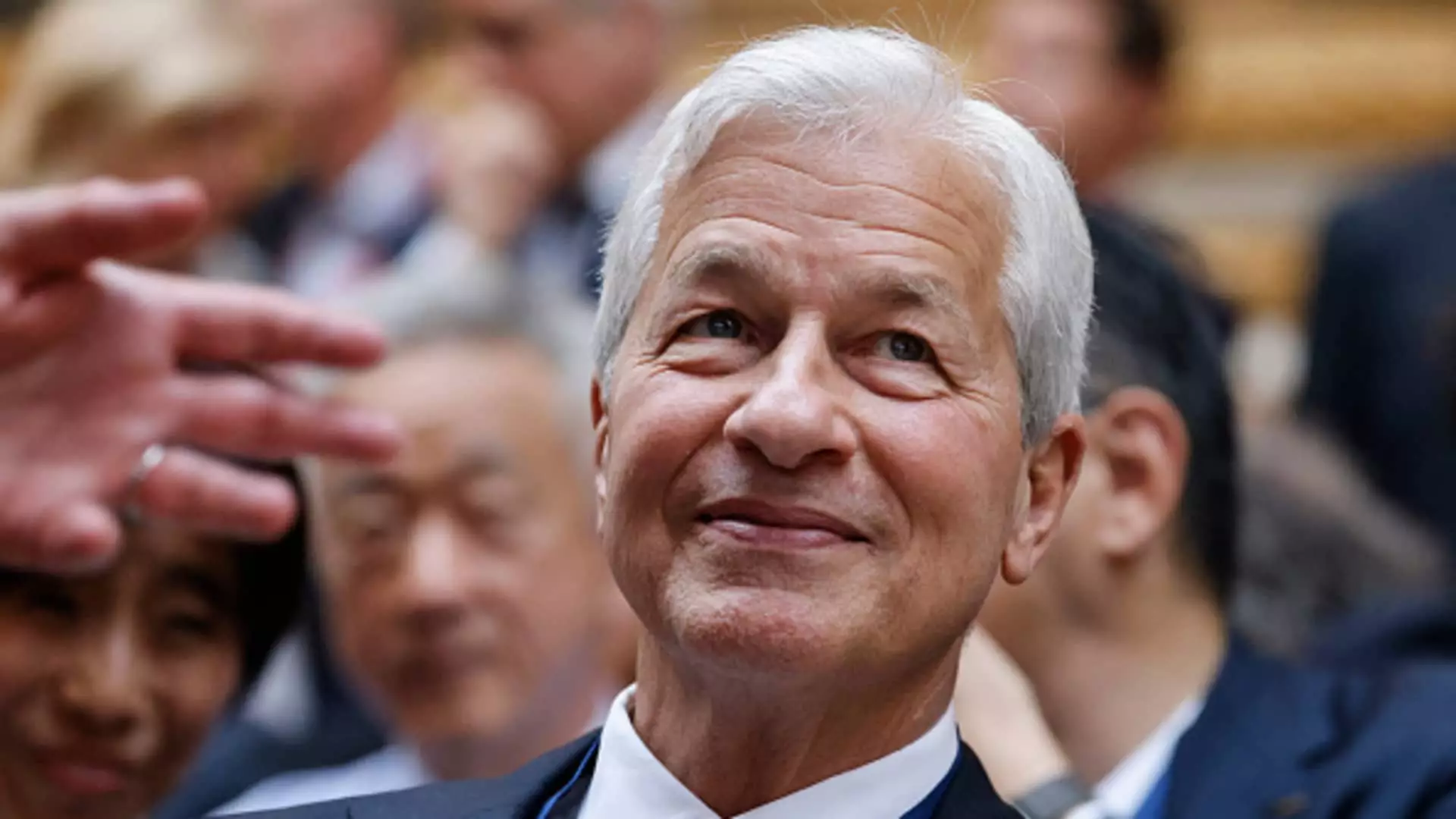JPMorgan Chase is set to unveil its fourth-quarter earnings report early Wednesday morning, a moment that investors and analysts keenly await. Expectations run high, with projected earnings per share pegged at approximately $4.11 and revenues expected to reach around $41.7 billion, according to insights from LSEG. Additionally, the anticipated net interest income stands at $23.1 billion, as per StreetAccount. Trading revenues are also expected to showcase notable figures, with fixed-income trading projected at $4.42 billion and equities at $2.37 billion. These metrics will serve as crucial indicators for stakeholders analyzing the company’s standing within the broader banking sector.
As the financial landscape evolves, JPMorgan’s performance will be under scrutiny for evidence supporting the optimism that has emerged in the banking industry. Wall Street’s momentum has notably increased, bolstered by the robust performance of Main Street consumers. The recent political climate, especially the electoral success of Donald Trump, has led to speculation regarding potential regulatory amendments that could favor large financial institutions like JPMorgan. As the largest bank in the United States based on assets, the anticipation is that JPMorgan will leverage these conditions to its advantage.
Recent statements from JPMorgan’s executives highlight a forecasted 45% increase in investment banking revenue for the fourth quarter, along with an expected 15% uptick in trading revenue. This potential growth signals a strong finish to the year, suggesting that overall business performance is on an upswing. Analysts are now re-evaluating their projections, particularly in light of the bank’s revised expectations of a $2 billion increase in net interest income for 2025, hinting at a positive deviation from prior estimates.
However, amidst these favorable projections, JPMorgan’s leadership situation looms as a point of contention. CEO Jamie Dimon previously indicated a likelihood of stepping down within the next five years, particularly in light of No. 2 executive Daniel Pinto’s announcement regarding his plans to resign as chief operating officer. Investors may seek clarity on the bank’s succession strategies during the earnings call, as a well-defined leadership pipeline is crucial for maintaining investor confidence and operational continuity.
The interplay between JPMorgan’s performance and the Federal Reserve’s monetary policies will also be a hot topic. With rumors circulating about potential interest rate cuts—expected to be two this year—the market’s sentiment remains mixed. The bank’s ability to navigate these monetary dynamics could heavily influence its profitability and strategic growth initiatives. Analysts might inquire how these anticipated rate adjustments could shift operational strategies and impact overall financial performance.
Finally, the prospect of regulatory adaptations under a Trump administration could present JPMorgan with an unexpected windfall of capital. The potential easing of stringent regulations, particularly concerning the Basel 3 Endgame, could provide the bank with new avenues for growth and return on investment. Dimon has previously expressed caution regarding share buybacks due to stock valuations, yet continued growth could prompt a reconsideration of this stance.
JPMorgan Chase’s upcoming earnings report is poised to reveal significant insights into the bank’s operations while reflecting wider industry trends. Stakeholders will be eager to see if the bank will meet or exceed expectations, as they prepare for a new chapter in the financial narrative.

